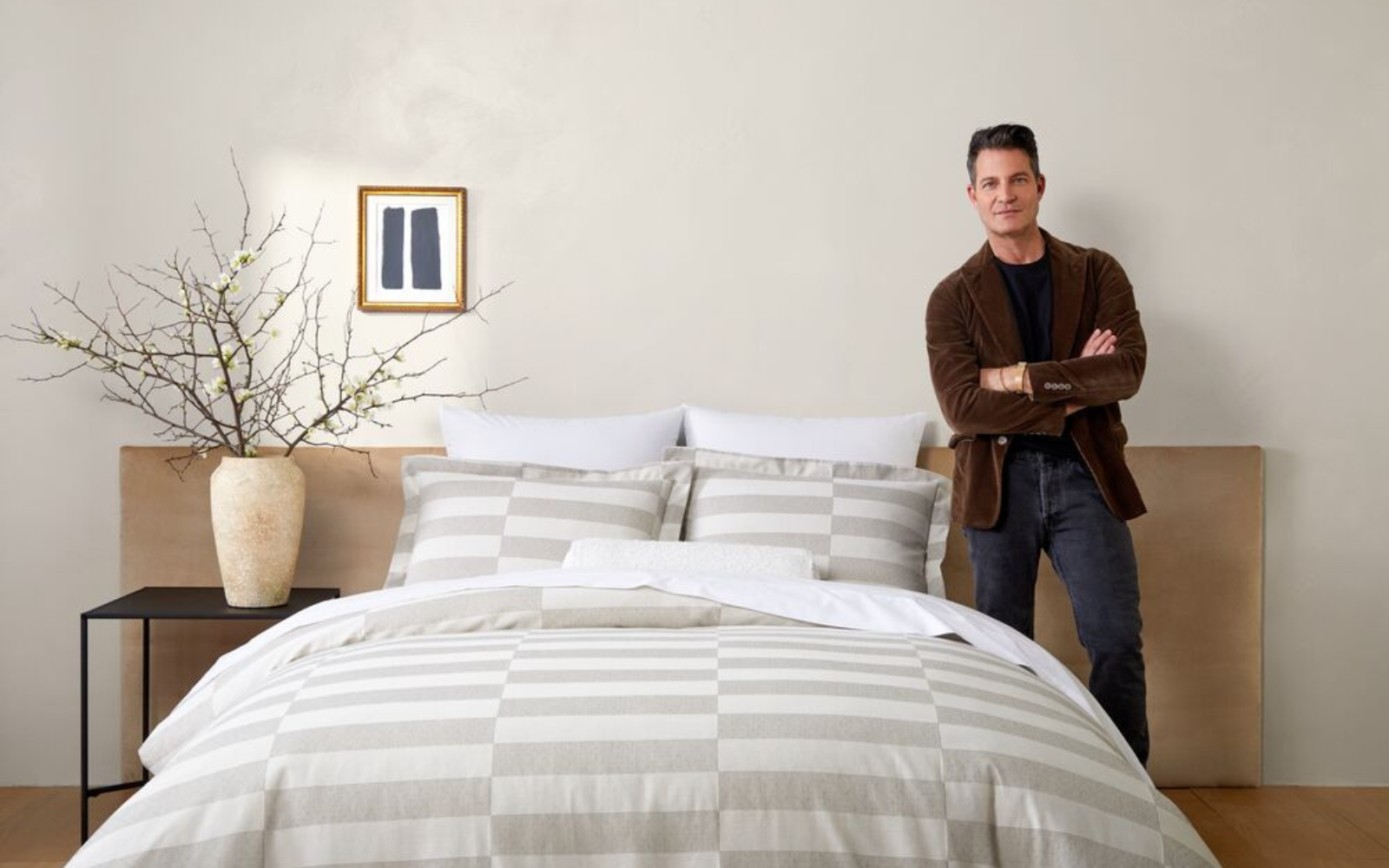
In his two-and-a-half decade career, Nate Berkus has taught us a lot about design – through The Nate Berkus Show, The Nate & Jeremiah Home Project, and more. However, his most recent endeavor, a bedding collection at Bloomingdale's, has seen the designer focus on the bedroom – and he's helping us sleep better in the process.
In creating some of the best bed sheets on the market, Nate learned a thing or two about different bedding materials – and, most importantly, their weave – something that is not always at the forefront of our minds when investing in new sheets.
Before buying any bedding, we'd be forgiven for researching the best thread count only; however, Nate warns that the weave is (arguably) even more important – and could be the secret to sleeping better.
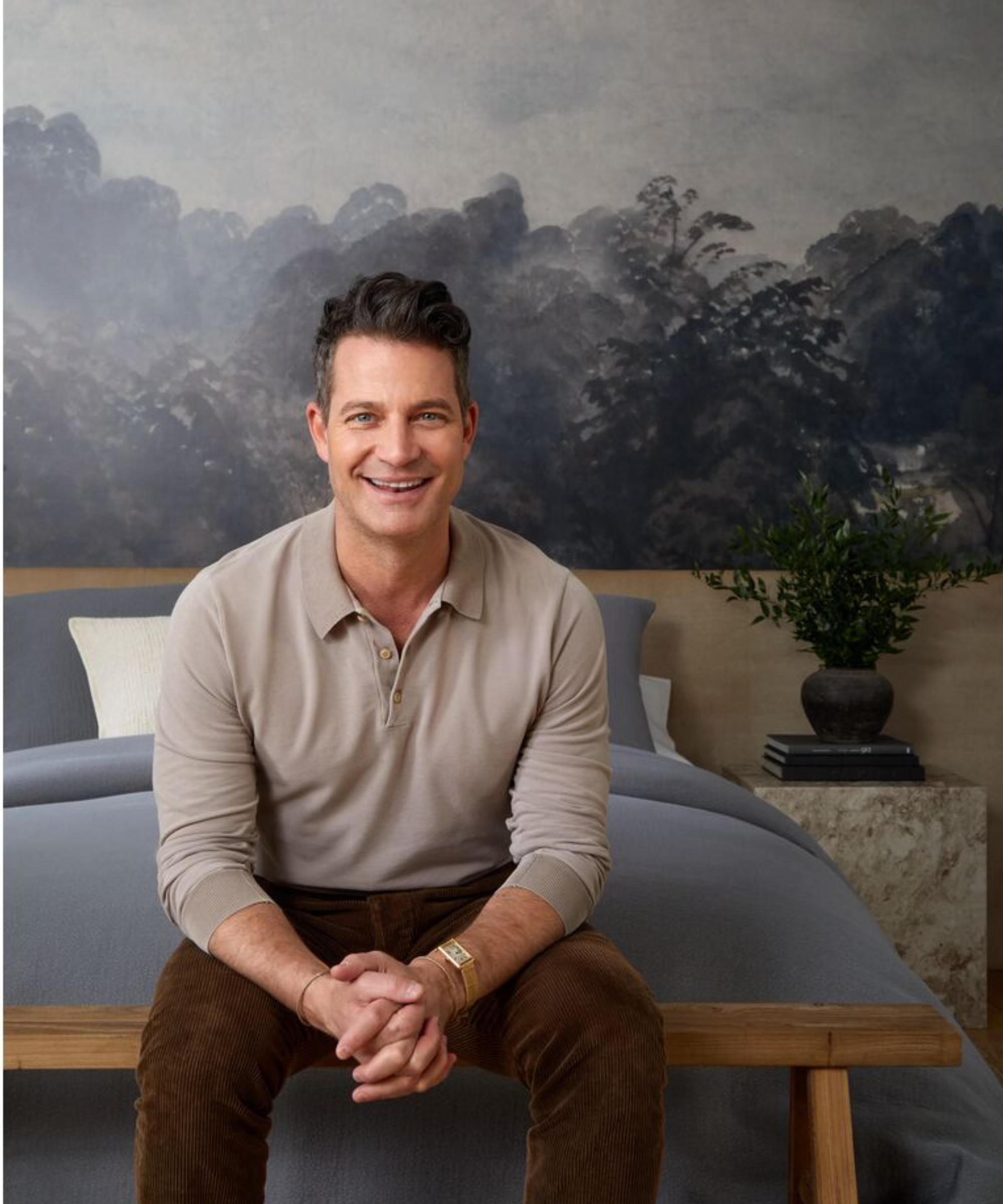
'It's not necessarily about thread count, but it is about the weave. And it is about the quality of the cotton,' he says.
'You can have 2000 thread count sheets that sleep like they're from a "back to school store" – or you can have 400 thread count sheets that feel like you are sleeping every night in someone's castle. The weave and the quality of the cotton really affect how it feels against our skin.'
But what exactly are thread counts and weaves? And what is the difference? Yvonne Carbone, the quality control manager at bedding experts Sheridan agrees with Nate's comment – and breaks down the differences – so we can invest in the best sheets for sleep.
'Thread count is a term you've definitely heard bandied about before. Generally, the belief is that the higher the thread count, the better – which just isn't true,' she emphasizes. Thread count is the number of threads lengthwise, added together with the number of threads width-wise. From that, manufacturers total the number of threads woven per inch.
Meanwhile, weaves are simply the different weaves that make up the bedding material. 'They are pretty relevant; they contribute a lot to what type of sheet ends up being best for cooling,' Yvonne says. 'It's how two separate strands of yarn interlace – how the horizontal strand (the weft) goes over (or under) the vertical yarn (the warp) and vice versa.'
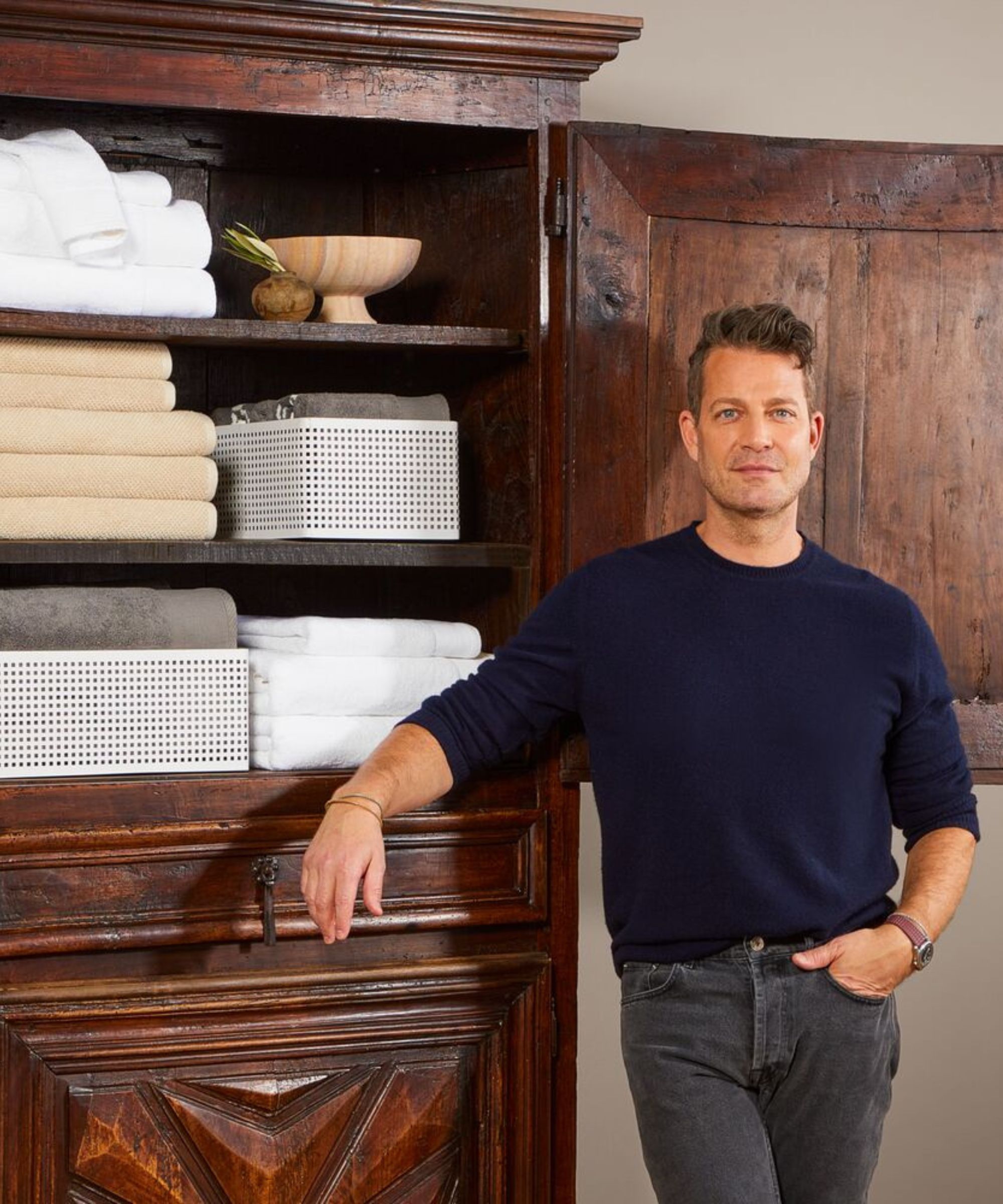
As we approach summer, we're naturally also raising the question of which weave is best when it's too hot to sleep; the expert recommends choosing a percale weave. 'There are many different types of weaves, but for summer bed sheets, you'll find that a percale weave is generally recommended across the board,' she says.
'A percale weave is one-over-one-under, a compact weave with a more matte finish than its counterparts. This kind of weave allows air to breathe through the interlacing threads – making for a cool, crisp, and lightweight finish.'
In terms of the best thread count for summer, she recommends going to the lighter end of the scale – and choosing 300 and 400 thread counts. 'It allows air to pass through the weave, helping you stay cool while sleeping.'
You can shop our top picks from Nate Berkus's collection, find our favorite bedding picks below, or shop the whole Nate Berkus Signature Collection at Bloomingdale's.
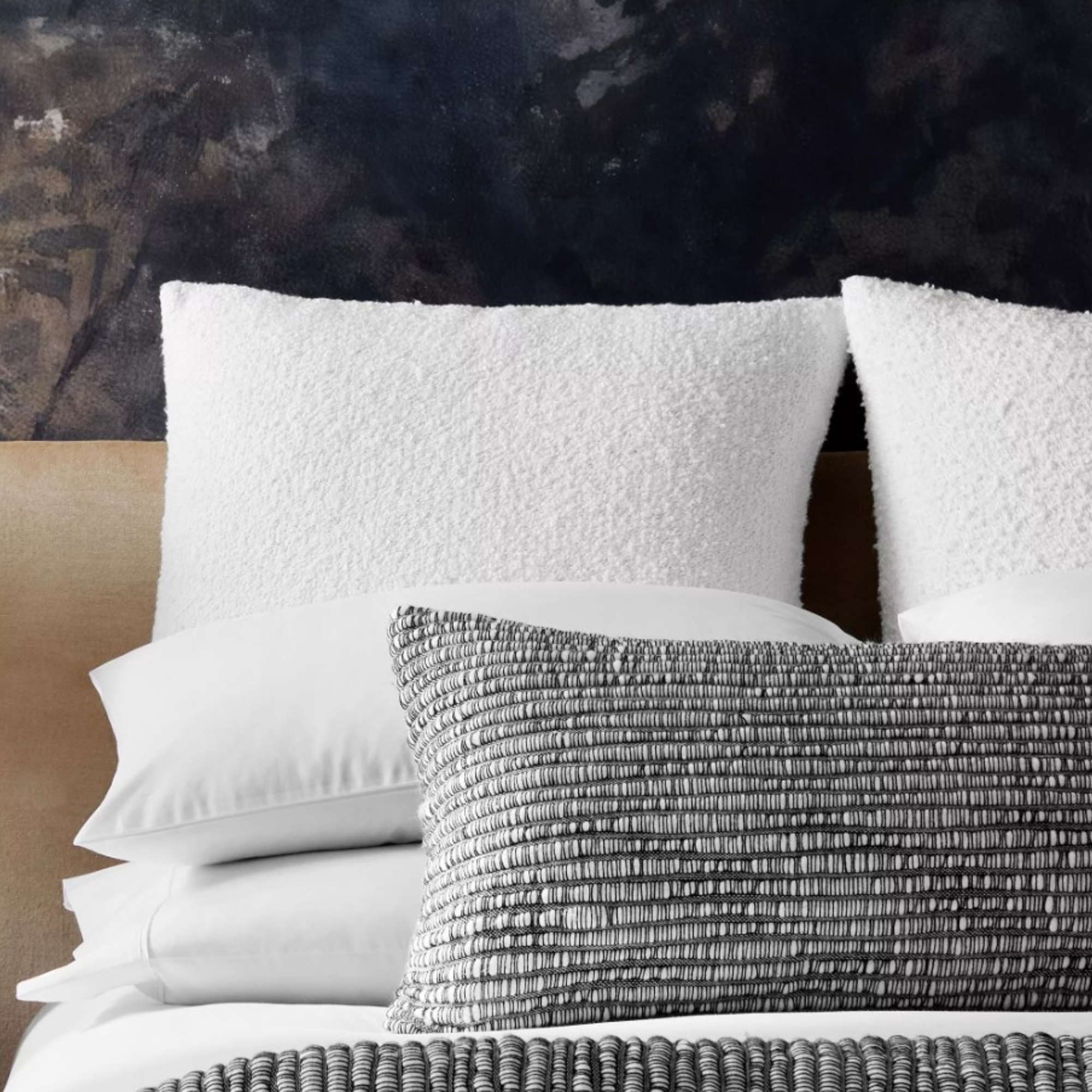
This sham is as comfortable as it is stylish. The trendy bouclé texture adds an instant chic to your bedroom – and it's finished with a knife-edge technique for a premium, tailored look.
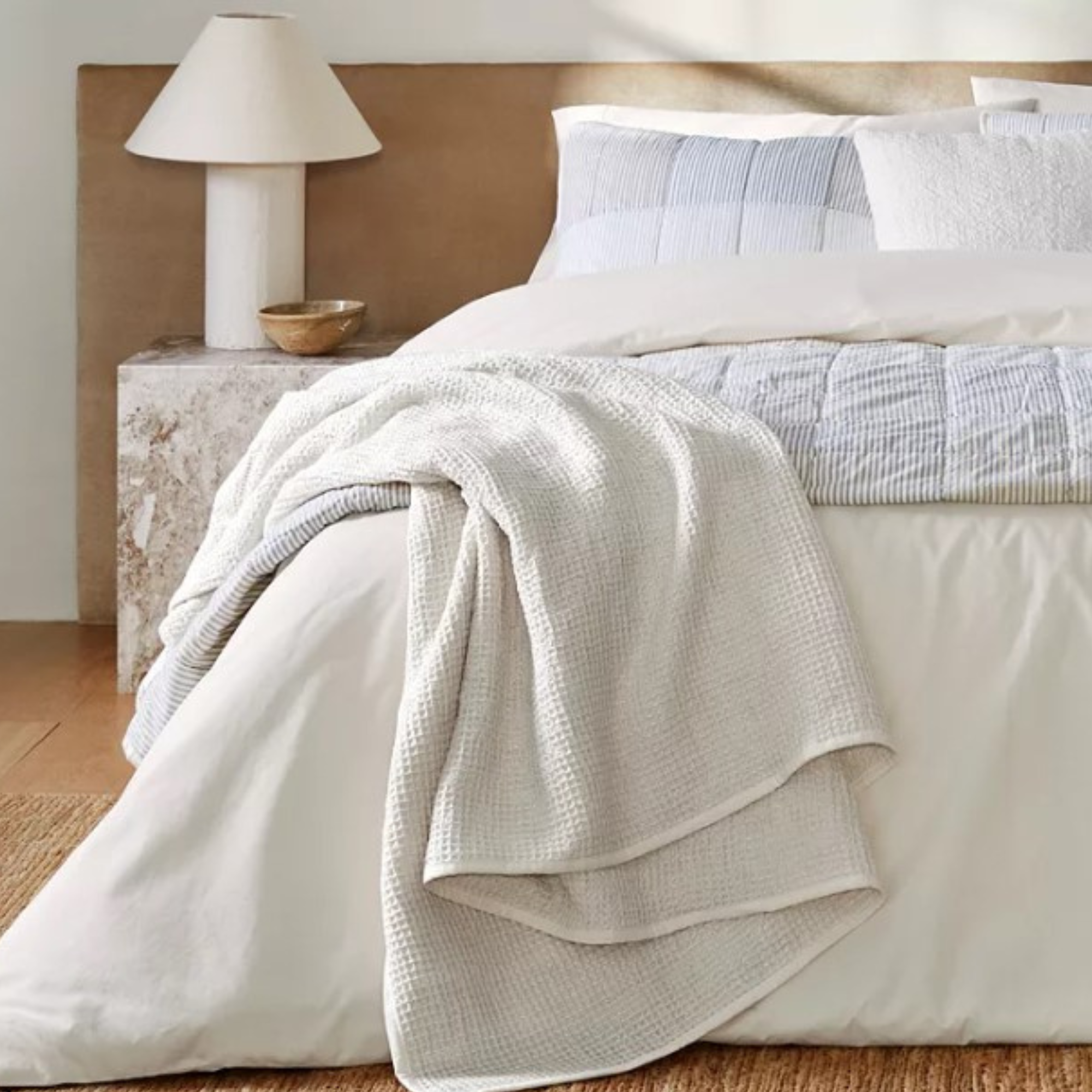
This blanket is a part of the Waffle Bedding Collection, featuring a textured weave for a lived-in feel. Woven with a cotton/linen blend, this textural blanket gets even softer and loftier with time.
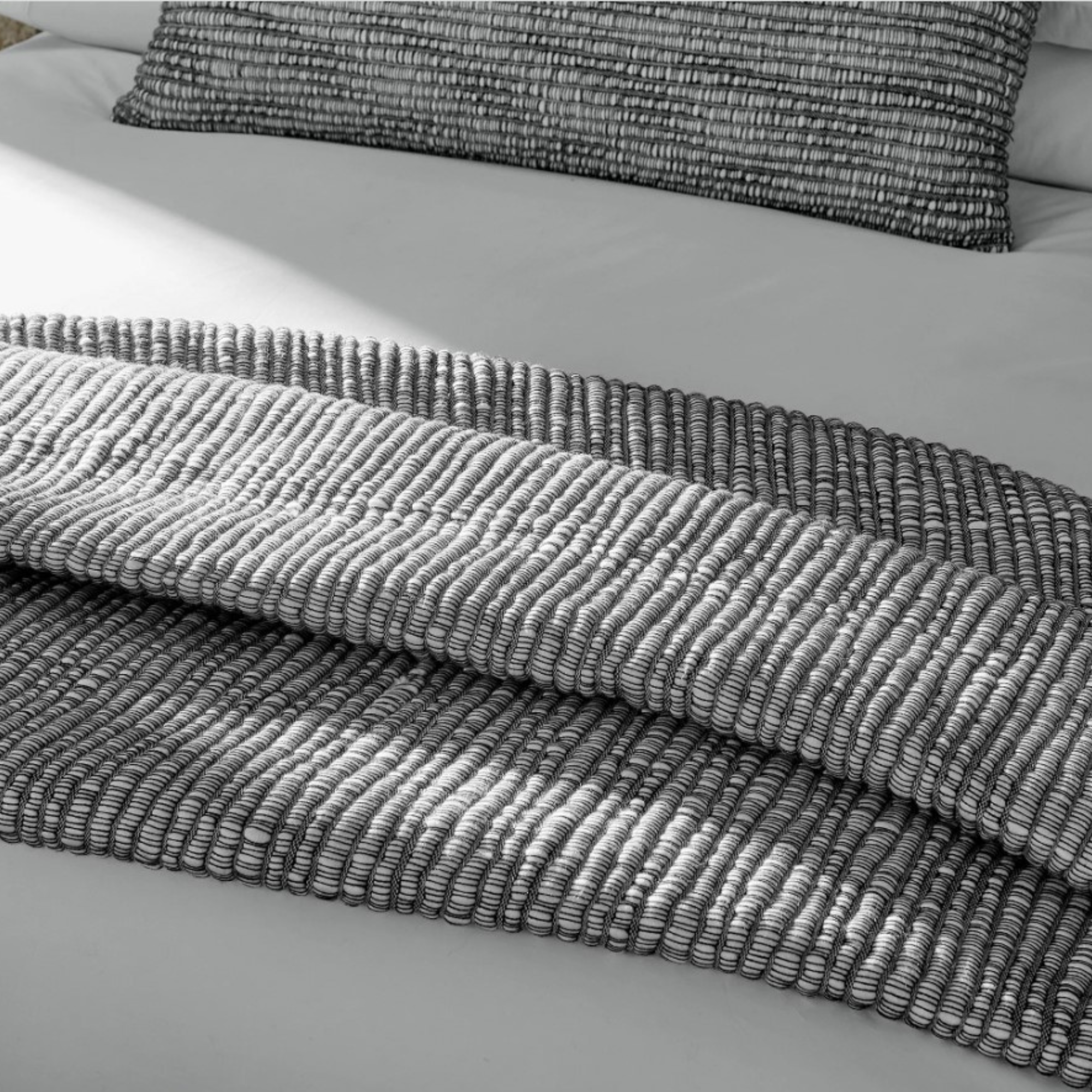
The textured yarn construction of this throw is said to add an immediate style boost to your bedroom (but it also looks great on a living room sofa).







